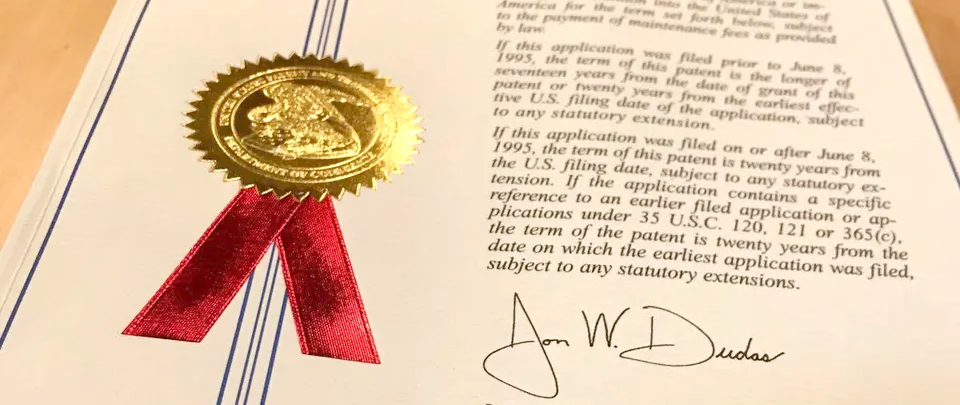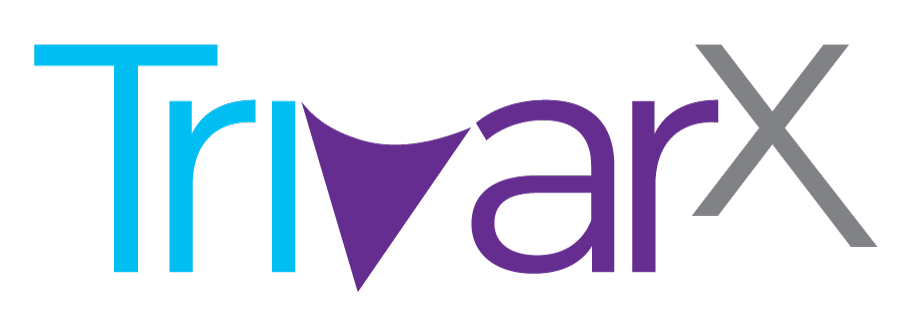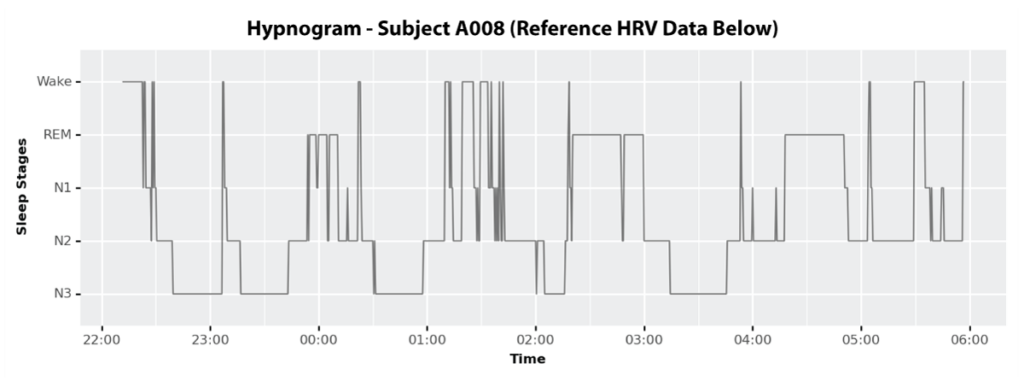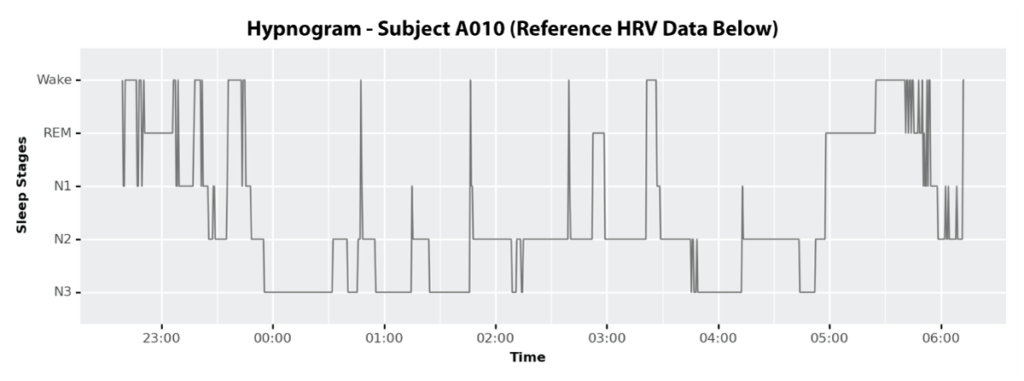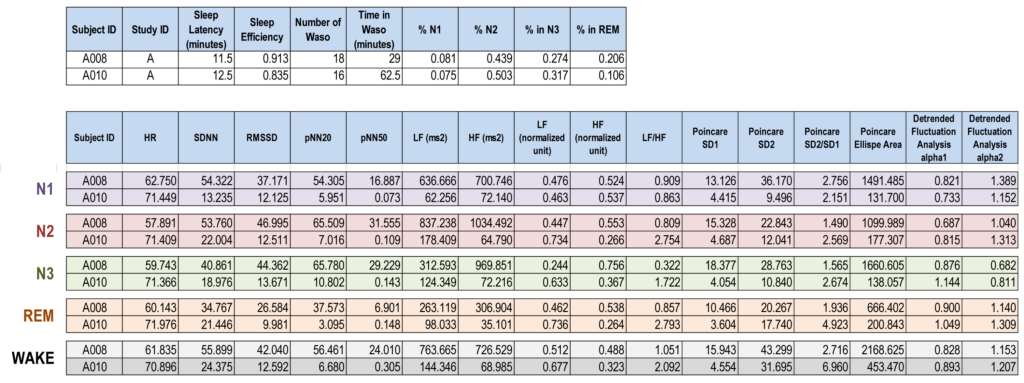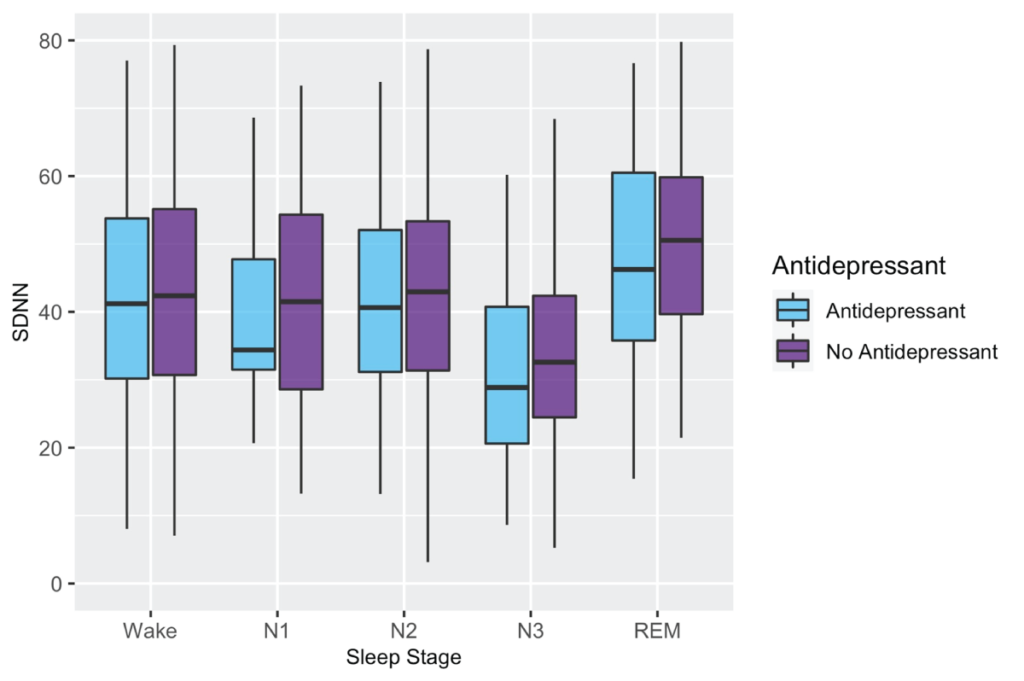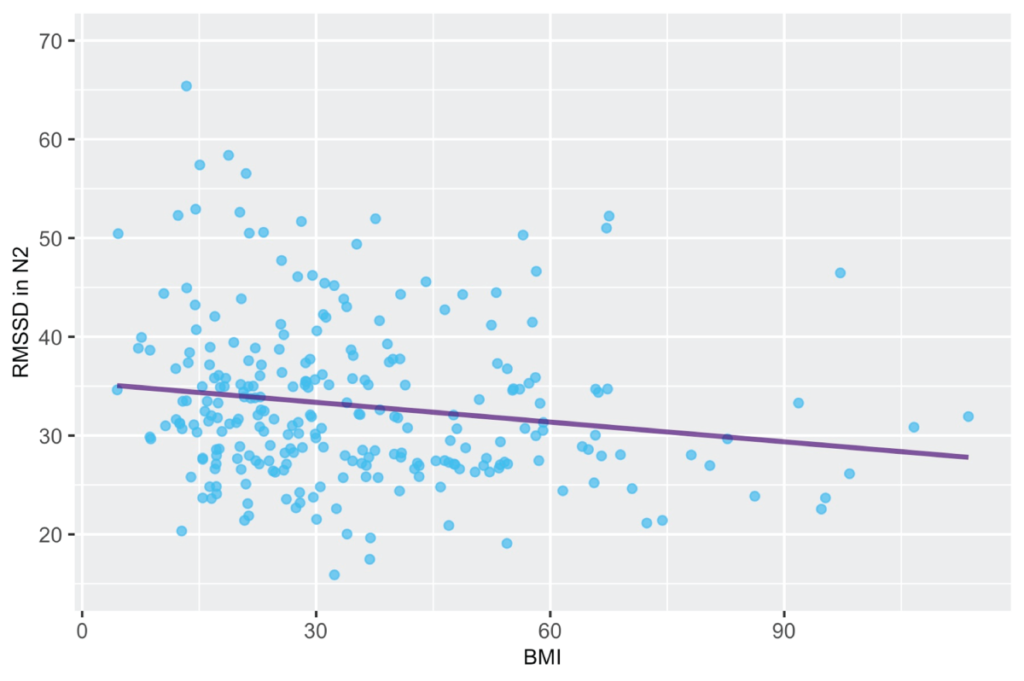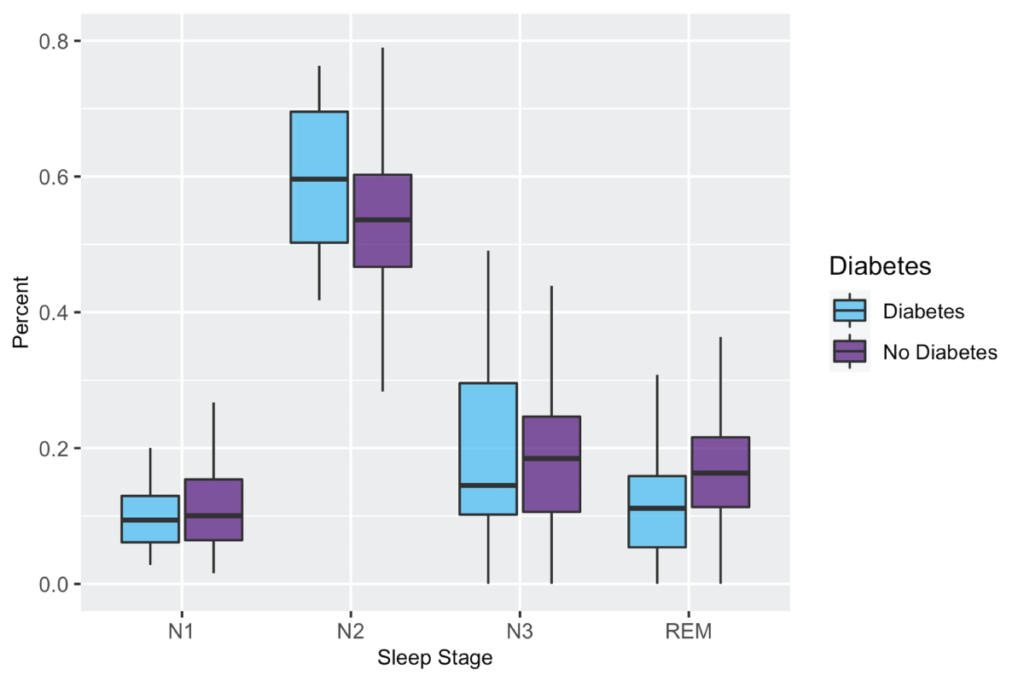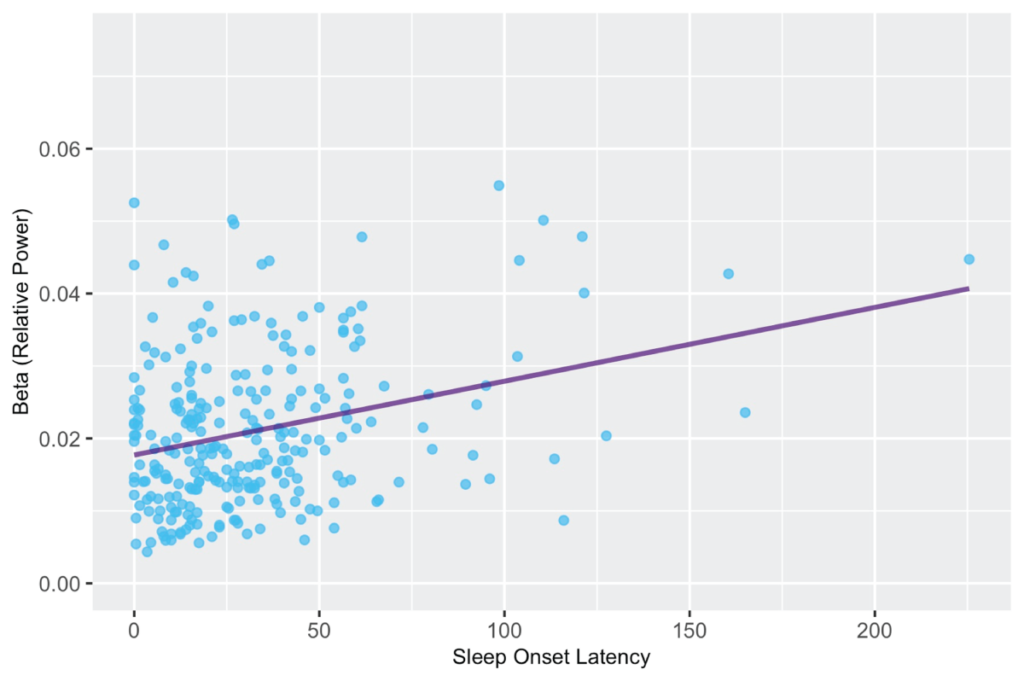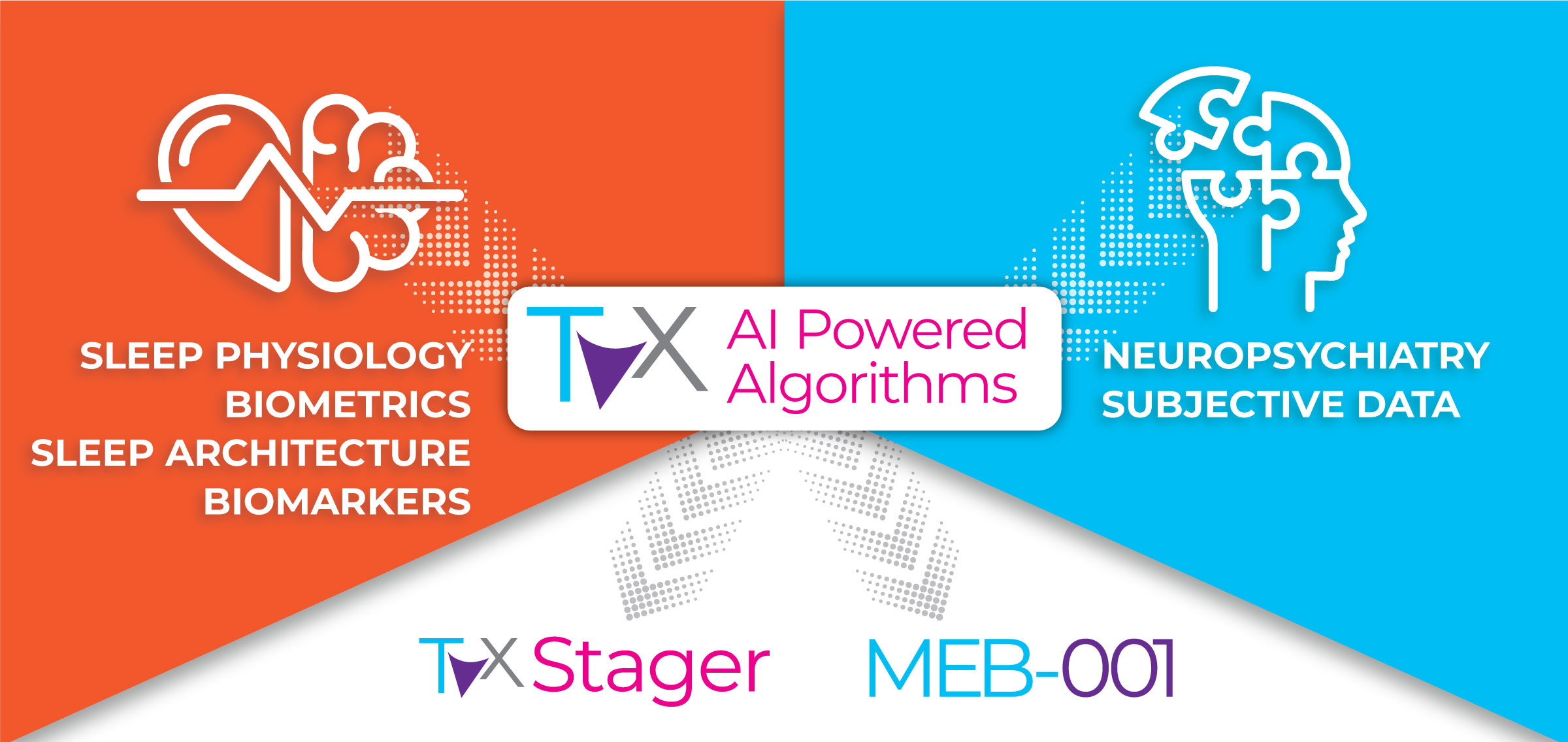

HEART RATE VARIABILITY is critcal to physical, mental & sleep health
THE HRV CONNECTION
• HRV is a sensitive measure of sleep deprivation and highly correlates with psychomotor performance measured with the Psychomotor Vigilance Test (PVT).
• High sleep onset latency (the time it takes one to fall asleep) and poor sleep quality are associated with a higher heart rate and lower HRV.
• Chronic insomnia and sleep deprivation can also affect HRV.
• In depression, the HRV analysis demonstrates a predominant sympathetic modulation and a parasympathetic withdrawal.
• Obstructive Sleep Apnea (OSA) is associated with lower HRV. This reduction can be worsened if they have another comorbid condition that affects their HRV, such as metabolic syndrome.
• HRV has been suggested as a marker for obstructive sleep apnea and as a surrogate of intervention (CPAP treatment) by partially reversing the effects of sleep apnea on HRV.
• Heart rate and HRV should be added as ancillary clinical information during Multiple Sleep Latency Tests (MSLT).
• In circadian sleep disturbances, cardiac measures during sleep loss give a new window that may allow a complete understanding of the interaction of sleep and arousal systems as controllers of performance and alertness.
OUR HYPOTHESIS
Mapping autonomic function, HRV, throughout the four sleep stages will add a new dimension in sleep architecture features that will better inform researchers of autonomic dysregulation associated with sleep disturbances and potential comorbid mental health conditions without the requirement of additional screens and assessments.
Frontiers
| Enhanced sleep staging with artificial intelligence: a validation study of
new software for sleep scoring (frontiersin.org)
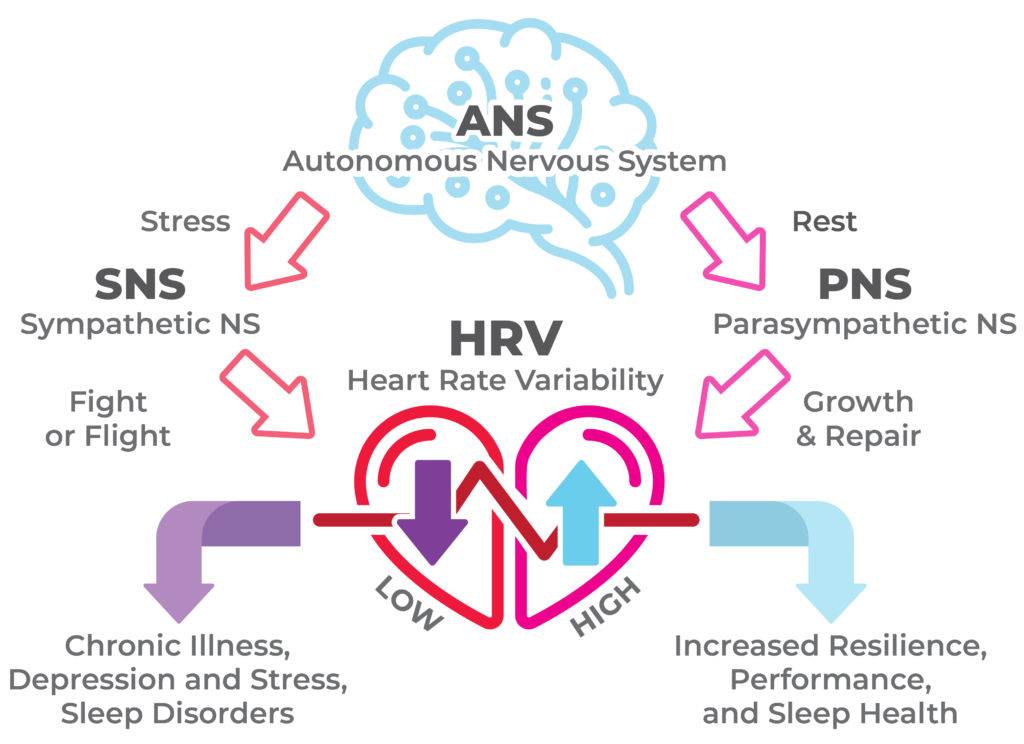
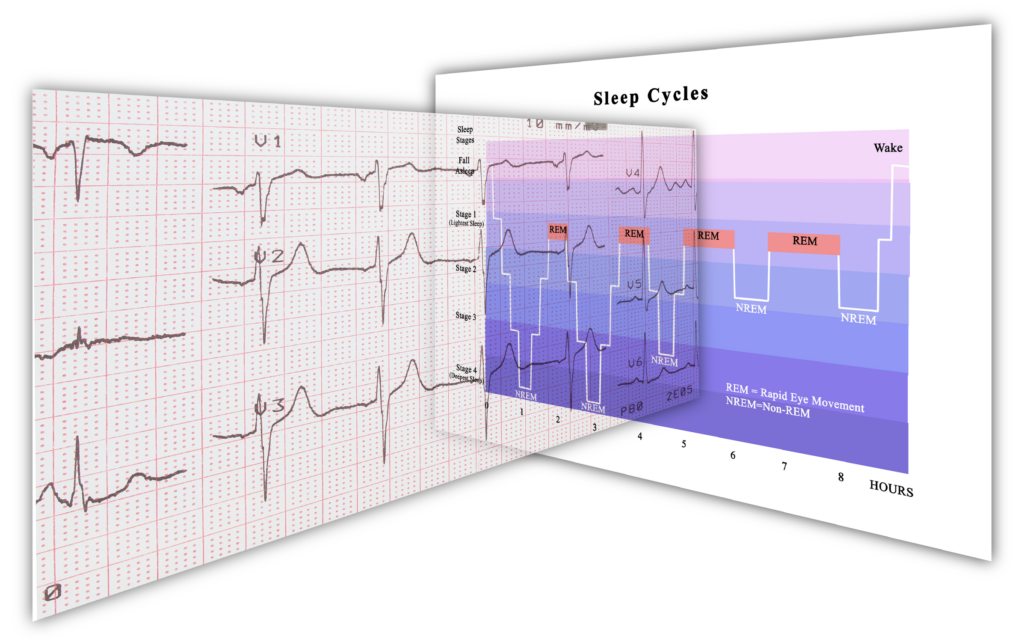
HOW IT WORKS
TvX Stager is a software application that uses Trivarx proprietary artificial intelligence, machine learning, and deep learning techniques to analyze Electroencephalogram (EEG) and Electrocardiogram (ECG) data extracted from European Data Format (EDF) files from your existing Polysomnography (PSG) software.
TvX Stager automatically stages sleep, characterizes critical features of sleep architecture, and calculates standard measures of Heart Rate Variability by sleep stage. TvX Stager performs these operations in minutes, staging sleep comparably to expert human raters.
TvX Stager is intended to be used by researchers in fields including but not limited to behavioral sleep medicine. It is not intended to diagnose a disease or other conditions or cure, mitigate, treat, or prevent disease. Per Section 201(h)(1) of the Food, Drug, and Cosmetic Act. TvX Stager does not meet the definition of a medical device.

CLICK TO EXPAND
CLICK TO EXPAND
TvX Stager analyzes right and left hemispheres EEG signal following the International 10-20 System Technical Specifications for adults EEG. These Specifications are supported by the American Academy of Sleep Medicine (AASM) Guidelines recommendations. The Recommended - primary - EEG derivations and montages are: F4-A1, C4-A1, O2-A1 and; Backup - secondary - electrodes and montages are: F3-A2, C3-A2, O1-A2.
Heart Rate Variability is an important measure in the evaluation of autonomic modulation. The mapping of heart rate variability measures to the stages of sleep is of interest in research and clinical settings. TvX Stager reports select time and frequency domain HRV measures. NN-Intervals refer to the intervals between normal R-Peaks. During a measurement, artifacts may arise due to arrhythmic events or faulty sensors. This may lead to abnormal R-Peaks, which may in turn distort the statistical measures. TvX Stager implements artifact detection algorithms to avoid compromising of the HRV calculations.
CLICK TO EXPAND
The plots presented below illustrate a range of potential associations that can be analyzed using data computed through the TvX Stager application. The data used for these plots comes from sleep studies conducted on participants sourced from various sleep clinics across the United States. These participants were referred for polysomnography investigations due to suspected sleep disorders.
TVX STAGER UNIQUE FEATURES & BENEFITS
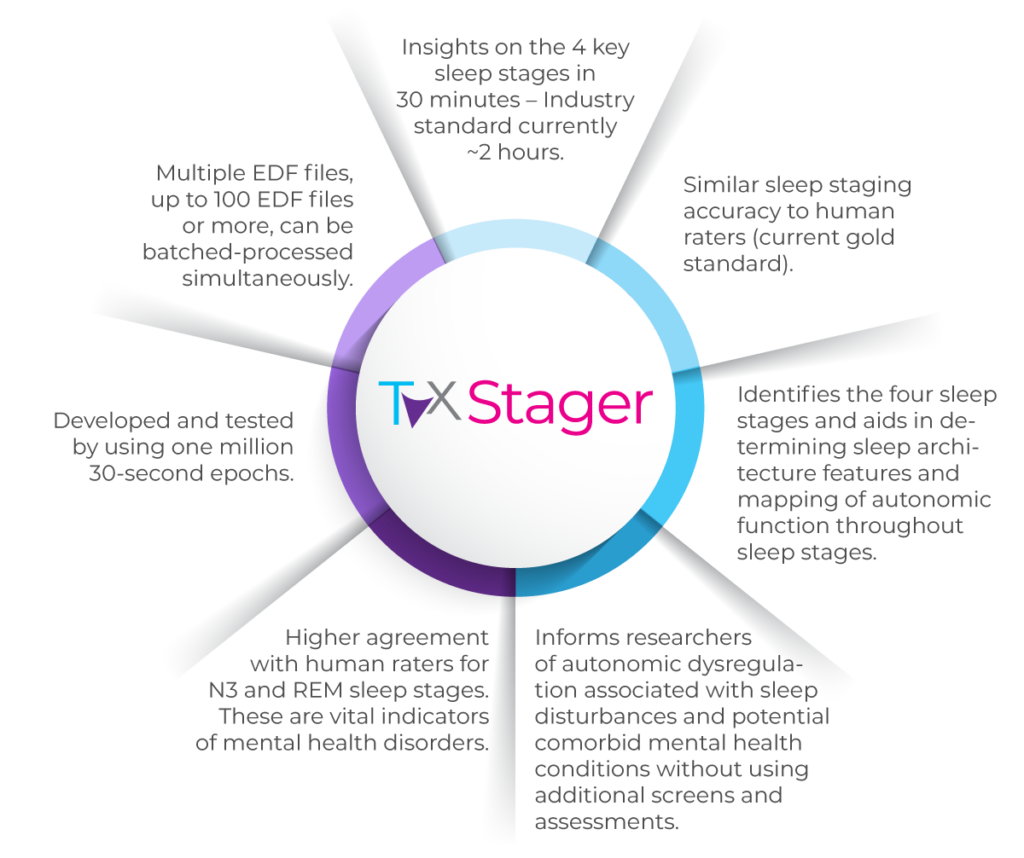

PARTICIPATE IN THE TVX STAGER EVALUATION & ASSESSMENT FOR RESEARCH PROGRAM


TvX Stager is the first sleep staging application to calculate standard measures of HRV by sleep stage. The range of potential associations that can be analyzed using the added dimension of HRV data are numerous, expansive and very promising in terms of identification of useful transdiagnostic indications of potential comorbid conditions. Depression, BMI, Obesity, and Cardiovascular Disease are just four examples shown in the plots in the section above. What other applications exist? The answer to this question will come from the you, the sleep research community, and that is why Trivarx has launched the Evaluation & Assessment for Research Program.
HOW THE E&A PROGRAM WORKS
1. Register your organization in the TvX Stager E&A Program (see form below).
2. Account setup with Trivarx support team.
3. Submit your de-identified PSG files for processing through the TvX Stager platform.
4. Your processed files are returned to you.
5. Complete the Evaluation & Assessment form.
We are soliciting your input and feedback in two specific areas. How can TvX Stager benefit your research efforts? Where do you see opportunities for enhancing our platform's capabilities?

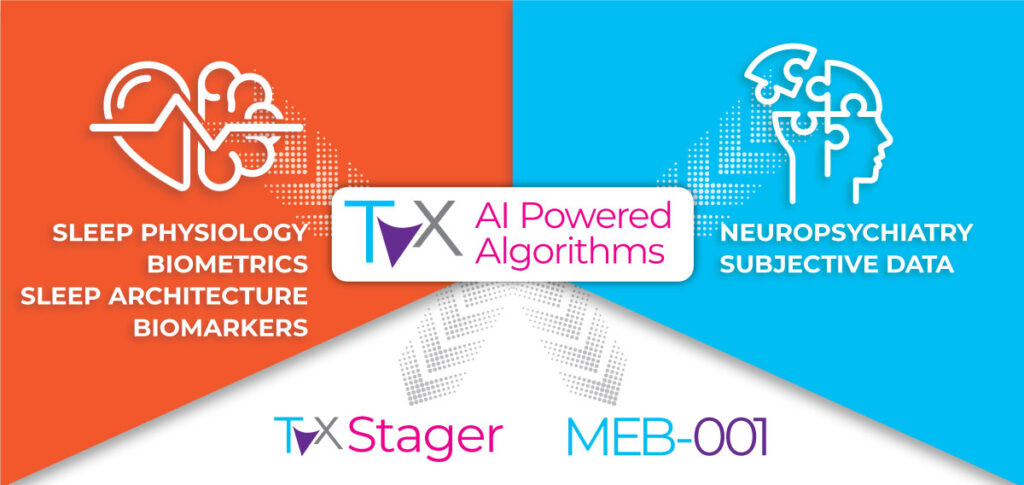
Trivarx is now in Phase II of a beta product study to identify correlations between DSM-5 Behavioral Health Conditions and PSG study results. "For clinicians and researchers, it is imperative to recognize the pivotal role of sleep in mental well-being and its profound correlation with DSM-5 behavioral health conditions. Trivarx, is dedicated to conducting cutting-edge research in this area, equipping fellow clinicians with the knowledge and tools to address sleep disorders alongside behavioral health concerns. By prioritizing the management of sleep disturbances, we can elevate the standard of care and improve the overall health outcomes of our patients." - Dr Tom Young - Non-executive Director
Trivarx is actively seeking research partners to participate in THE TRIVARX RESEARCH program

Investigating the Link Between Sleep and Mood Disorders
The bidirectional relationship between sleep disturbances and mental illness is well established.
WHAT IF?
What if sleep data could provide a clinical confirmation of a mood disorder, specifically unipolar depression without the need for additional screening or assessment?
OUR HYPOTHESIS
Analysis of polysomnography data from sleep studies, EDF files, to identify correlations to mental health diagnostic assessment indicators. Artificial Intelligence and Machine learning algorithms could provide a useful transdiagnostic indication of mood disorders.
HOW IT WORKS

Objectivity: Provides qualitative and objective screening results for cMDE based on PSG biomarkers. No subjective analysis and interpretation is involved in the process.
Scalability: Results are provided to primary care physicians and other healthcare specialists ordering sleep studies.
GATEWAY CONDITIONS

SLEEP IS THE WINDOW INTO MENTAL HEALTH
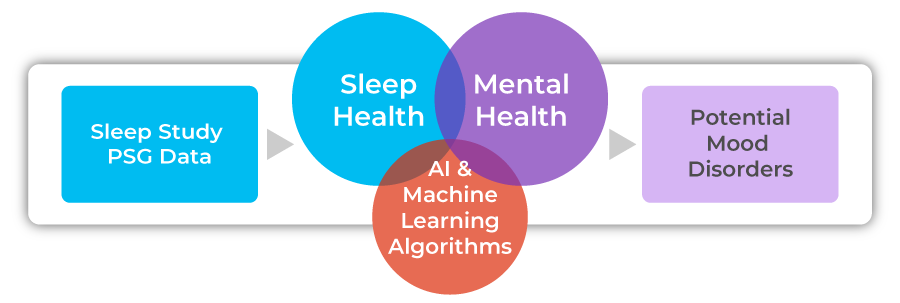
OUR JOURNEY
US Pat. No. 10,912,508 Method and system for assessing mental state - Issued 2/9/21
US Pat. No. 10,638,965 Method and system for monitoring stress conditions - Issued 5/5/20
US Pat. No. 10,039,485 Method and system for assessing mental state - Issued 8/7/18
US Pat. No. 9,861,308 Method and system for monitoring stress conditions - Issued 1/9/18
